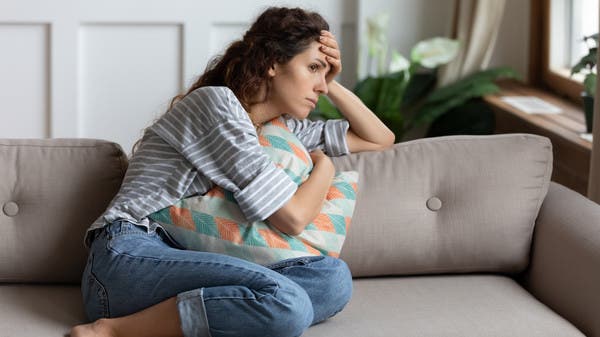Dr. David Rosemarin confirmed that anxiety that affects a person may lead to “strengthening and improving a person’s emotional relationships and reviving the love relationship that he establishes with others.”
A specialized psychiatrist and professor at the American Harvard University concluded that anxiety is not always bad as most people think, but rather it has benefits that may not occur to anyone, and that a person can benefit from it in his general life.
Doctor and expert in psychology David Rosmarin said, in an article published by “Psychology Today” and viewed by “Al Arabiya.net”, that anxiety that affects a person may lead to “strengthening and improving a person’s emotional relationships and reviving the love relationship that he establishes with others.”
Expert Rosmarin belittles medical attempts to find a cure for anxiety, whether it is a modern medical treatment or a natural treatment such as exercise and others, pointing out that a person “cannot completely escape feelings of anxiety, because it is part of the universal human experience.”
“Once this fact is accepted, the solution to anxiety becomes clear, which is that anxiety is not a curse, but a power,” he adds. He notes that “experiencing anxiety can enhance connection with the loved one, and can help the relationship flourish by improving our attunement to emotional tendencies and states.” general to others.
“Understanding, coping with, and managing other people’s emotions, which are essential skills for forming relationships, can be greatly enhanced by our own experience with anxiety,” he adds.
The psychologist explains what he goes by by saying: “People who have a history of adversity or trauma generally feel more empathy for others, and this is because when we worry for ourselves, we have a more intuitive sense of what others need when they are struggling.”
(expressive)
“Another general fact about anxiety is that when we use our anxiety to better understand other people’s feelings, it helps us manage and process our own feelings of anxiety.”
The writer concludes, “You can reduce your anxiety by stepping outside yourself, noticing the needs of others, and then responding to them.”
He also affirms that “suffering promotes compassion for others, as the most compassionate people are those who have gone through great difficulties in their lives. I would even say that many of my patients are among the most thoughtful and compassionate people I know.”
He asserts that “experiencing anxiety, depression, or other mental health challenges can lead us to be more aware of the feelings of others. People with high anxiety often learn valuable interpersonal skills because of their anxiety.. They are better people because of their anxiety, are more empathetic, and are more resourceful.” “We are more caring, and more aware of others and their experiences. Anxiety can help us care about other people’s feelings and experiences. When we use our distress as a yardstick to measure and understand someone else’s feelings.”


